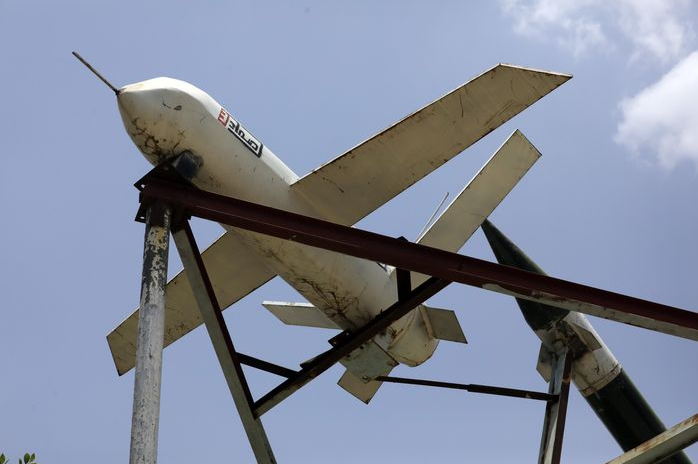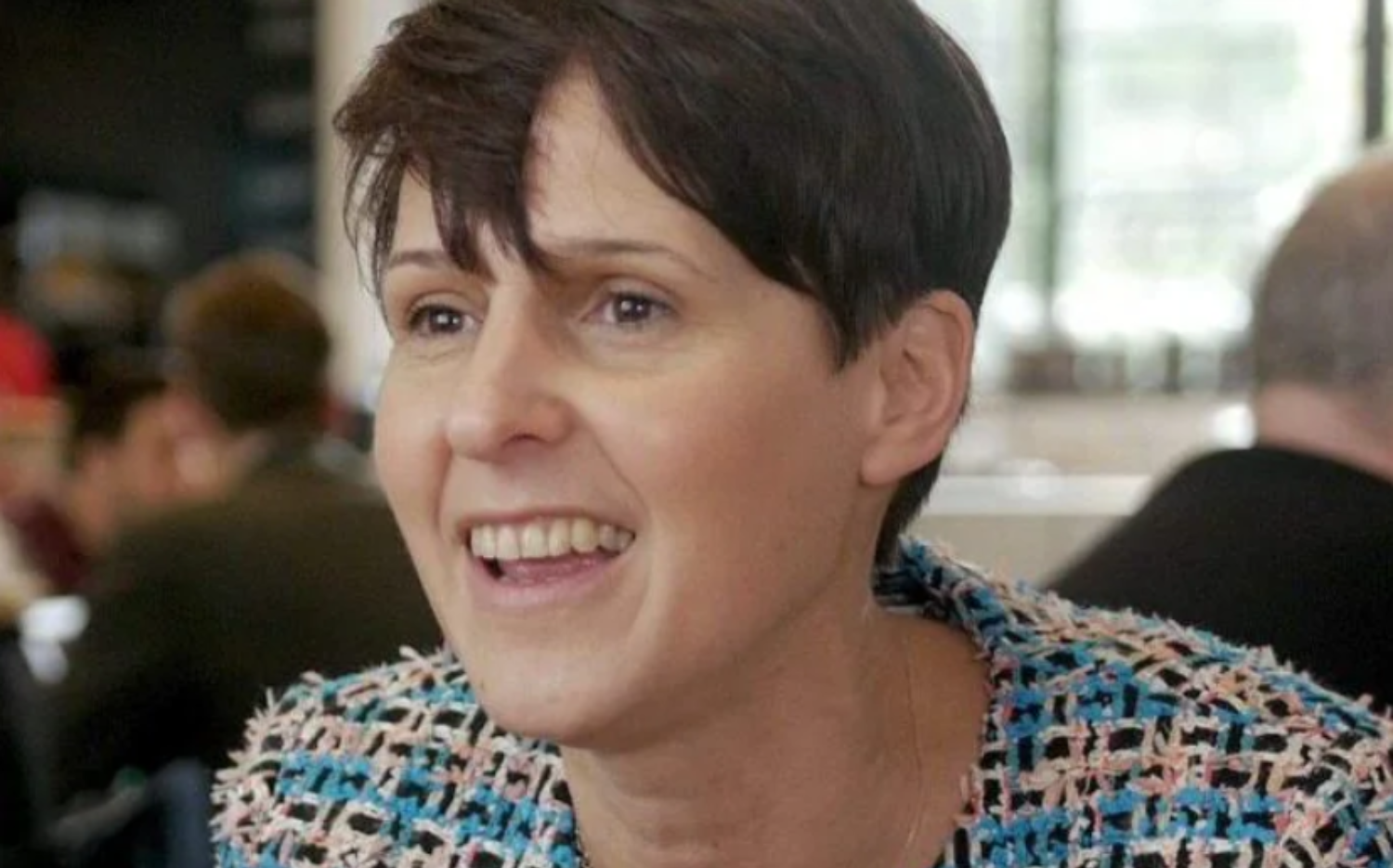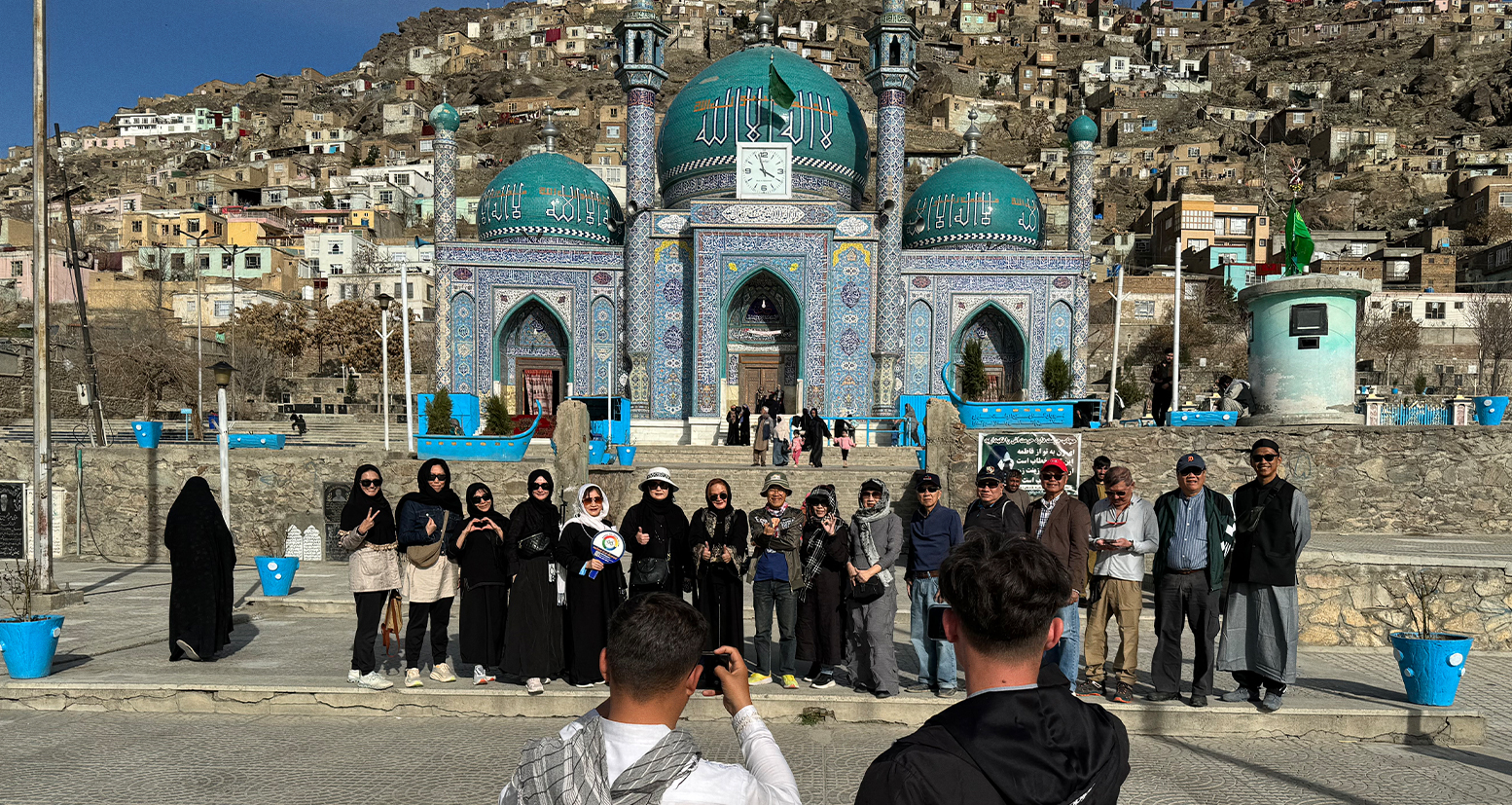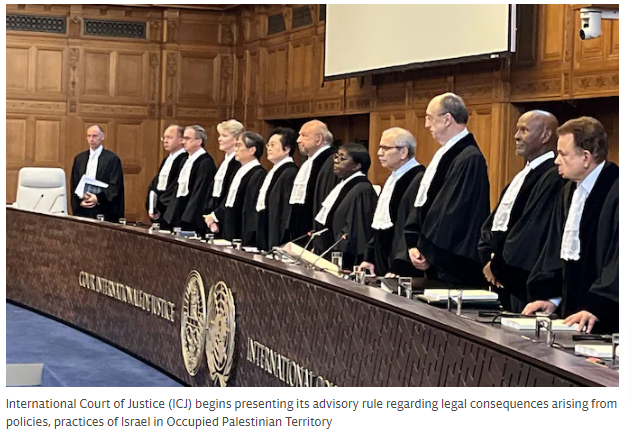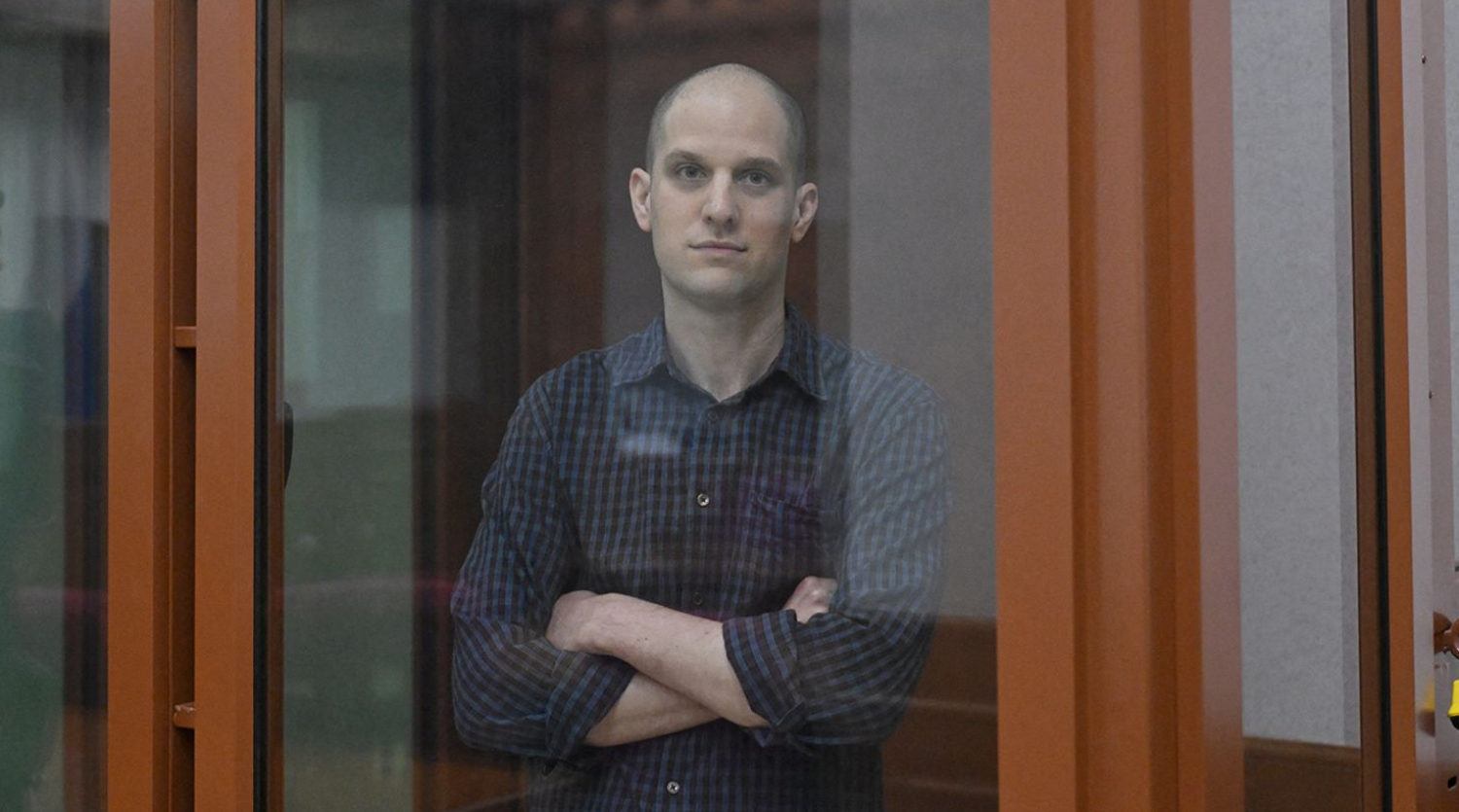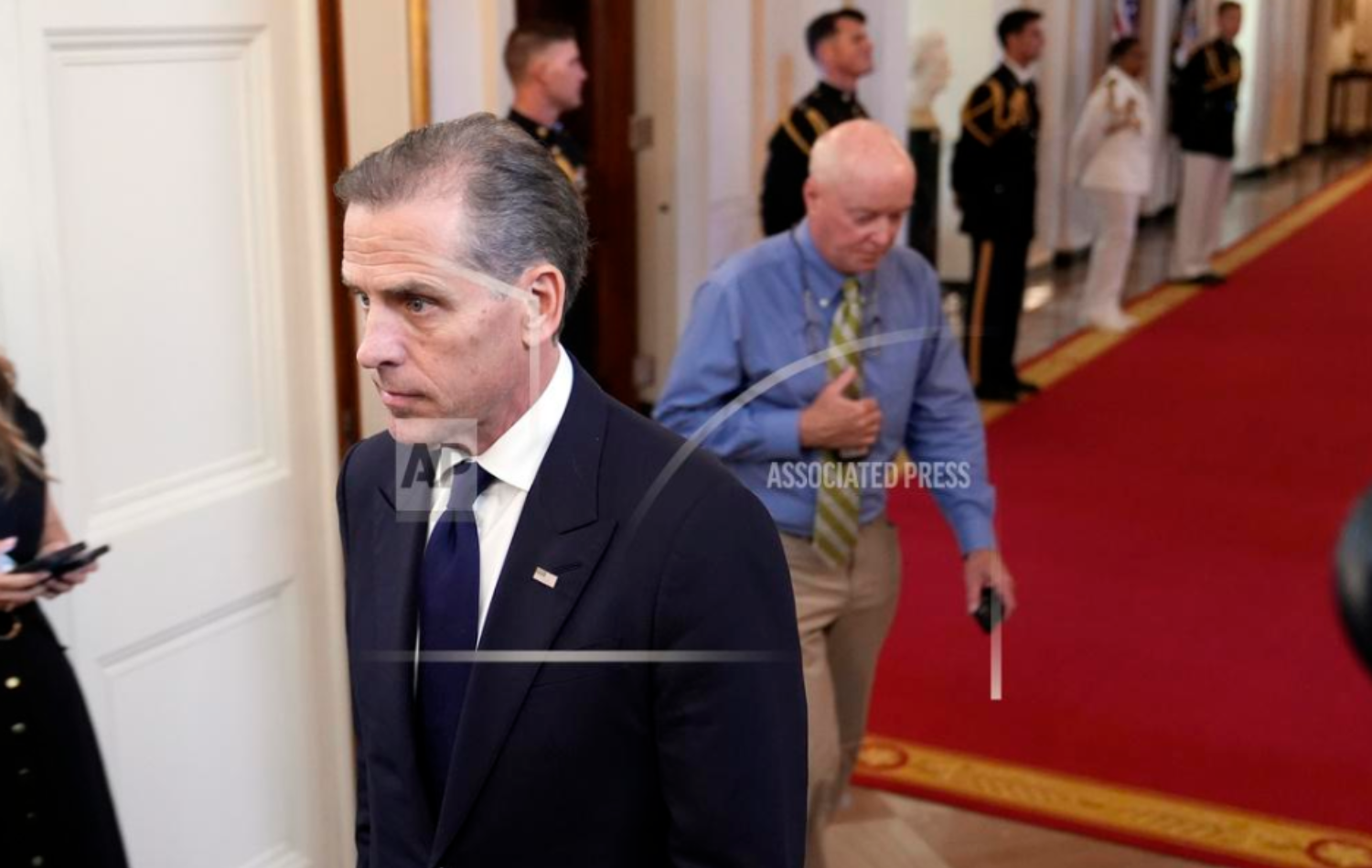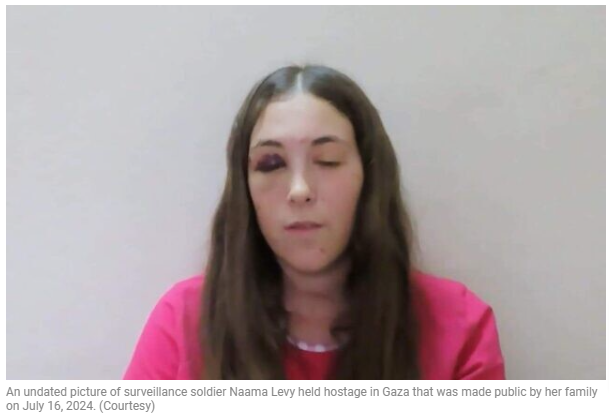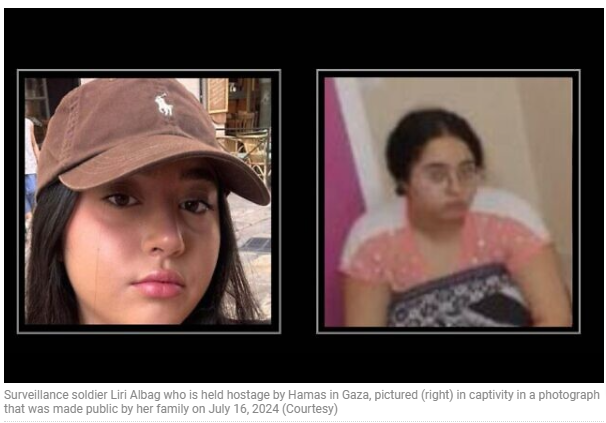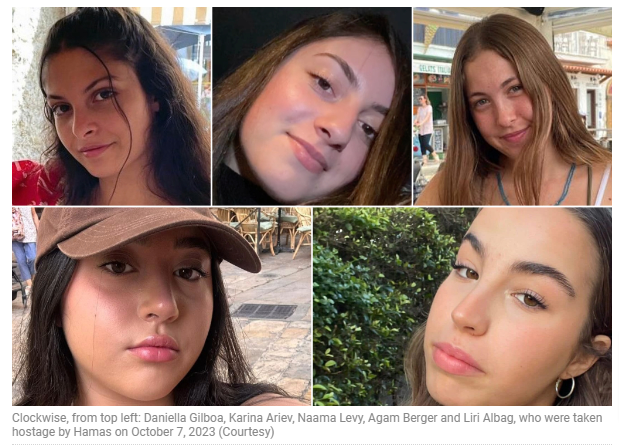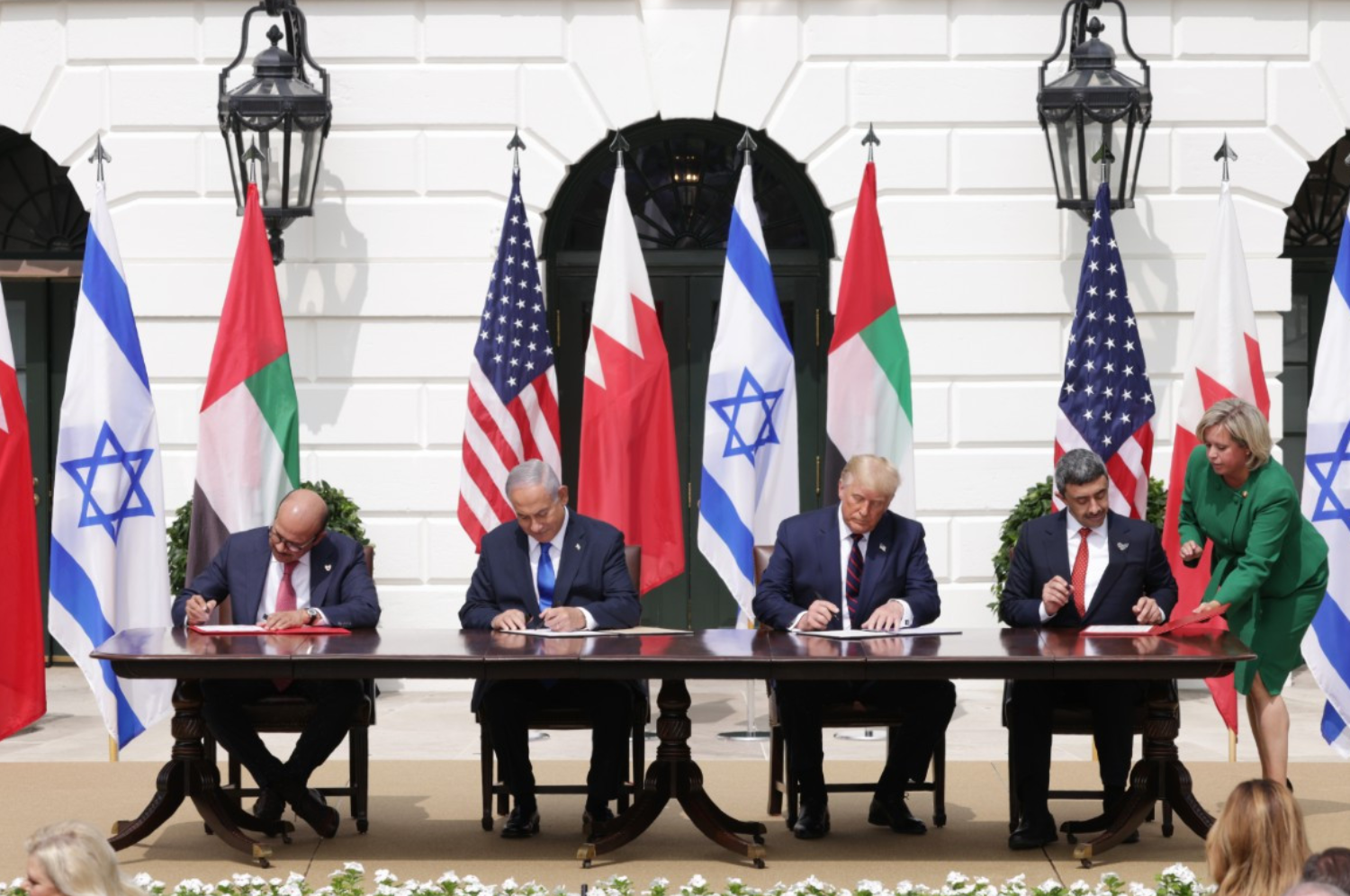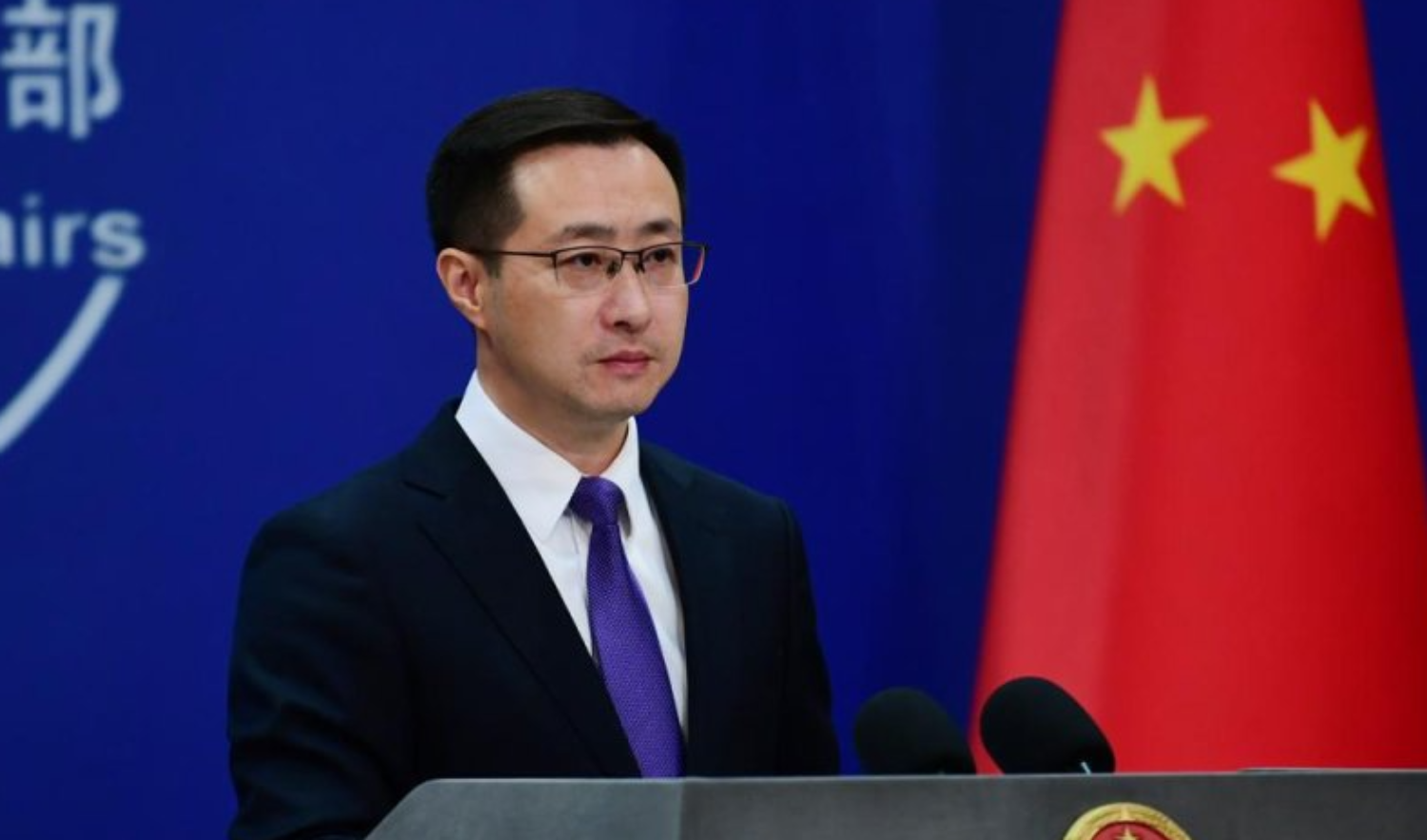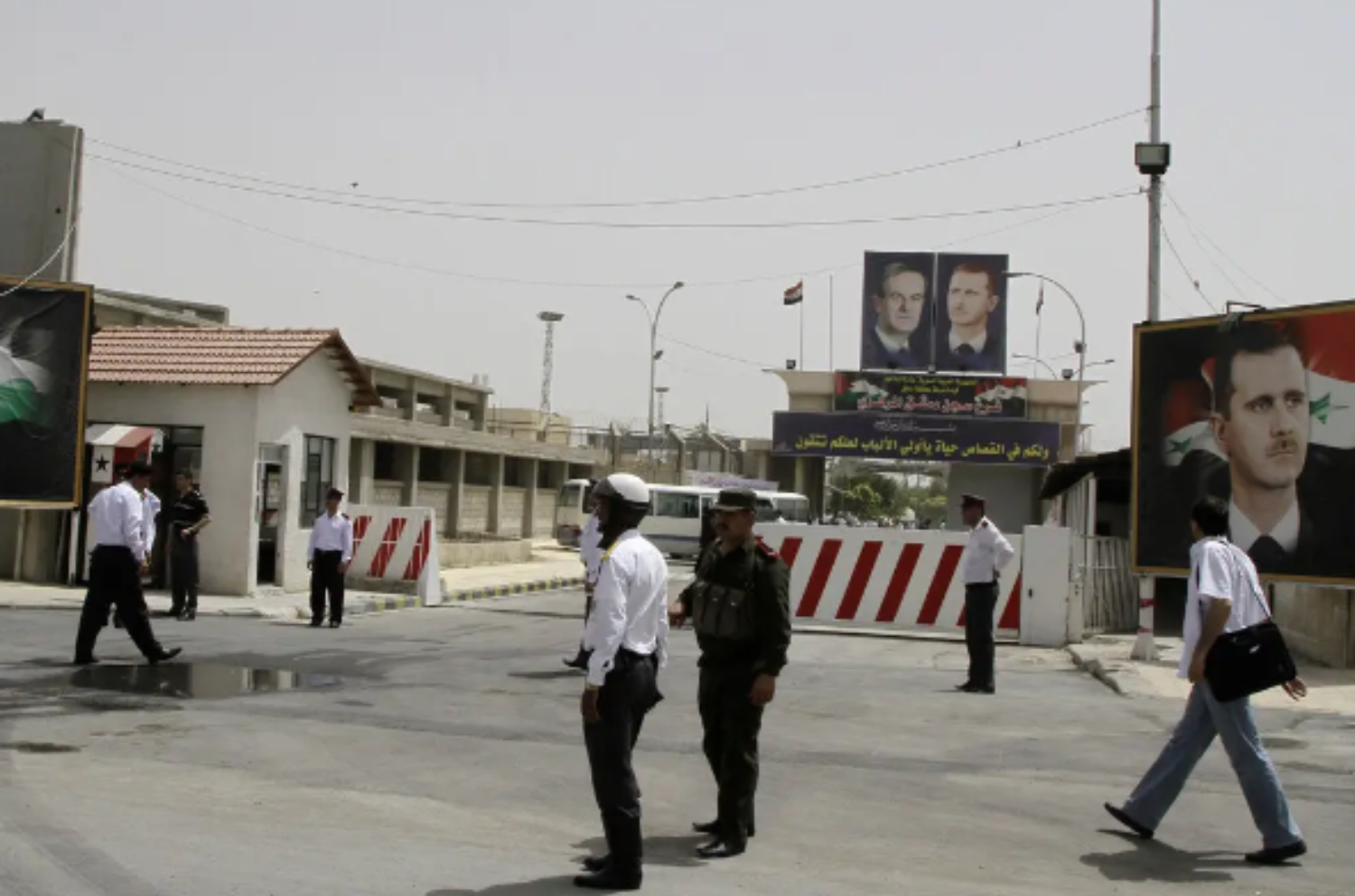-
Posts
10,767 -
Joined
-
Last visited
Content Type
Events
Forums
Downloads
Quizzes
Gallery
Blogs
Everything posted by Social Media
-
U.S. intelligence agencies are issuing warnings about a possible escalation in Middle East tensions, as Russia considers arming Houthi militants in Yemen with advanced anti-ship missiles. This move is seen as retaliation for the Biden administration’s support of Ukrainian military actions against Russia. The intelligence has prompted concerns within the U.S. military and government about the implications of such an arms transfer. The situation arises as General Erik Kurilla, the top U.S. Middle East commander, has expressed concerns in a classified letter to Defense Secretary Lloyd Austin. Kurilla highlighted that current military operations are failing to deter Houthi attacks on shipping routes in the Red Sea. He emphasized the need for a broader strategic approach to counter these threats effectively. In response to the potential Russian arms deal, the White House has initiated confidential diplomatic efforts to dissuade Moscow from providing the missiles to the Iranian-backed Houthis. The administration is leveraging a third country to engage with Russian President Vladimir Putin, attempting to prevent the delivery of these advanced weapons. However, officials have not disclosed which country is acting as the intermediary. The combination of intelligence reports and Kurilla’s warnings has raised questions about the adequacy of the current U.S. strategy to counter Houthi attacks on crucial waterways. An administration official revealed that Central Command has been tasked with preparing a comprehensive list of potential targets, including specific militants, for possible military strikes. Some U.S. officials believe more aggressive measures could have been implemented earlier to safeguard commercial shipping, such as targeting larger weapons-storage facilities and Houthi leaders. Should Russia proceed with arming the Houthis, it would mark a significant escalation in its ongoing confrontation with Washington. This development comes amidst Russia’s efforts to strengthen ties with North Korea and Iran and secure China’s support for its defense industry. Analysts suggest that Russia might be using the threat of supplying missiles to the Houthis as leverage to discourage the U.S. from further supporting Ukraine. General Kurilla’s letter advocates for a comprehensive “whole of government” approach, combining economic, diplomatic, and military measures to deter Houthi aggression in the Red Sea and Bab el-Mandeb strait. Over the past eight months, at least 30 ships have been damaged, with two sinking as a result of Houthi attacks. A defense official noted that Kurilla’s memo conveyed a stark warning: “U.S. service members will die if we continue going this way.” The Biden administration has authorized limited military actions, including strikes against Houthi missiles and drones poised for launch. However, some Central Command officials argue that these measures have been insufficient in preventing the Houthis from consistently threatening commercial shipping. One U.S. official commented on the current strategy, stating, “If you tell the military to re-establish freedom of navigation and then you tell them to only be defensive, it isn’t going to work. It is all about protecting ships without affecting the root cause.” The Houthis possess a diverse arsenal of weapons for attacking ships, including drones, ballistic missiles, cruise missiles, and unmanned boats, many supplied by Iran. The potential addition of Russian anti-ship missiles would significantly enhance their capabilities. Behnam Ben Taleblu, a senior fellow at the Foundation for Defense of Democracies, remarked, “The Houthis have the most robust anti-ship capabilities among Iran’s regional proxy network. But Russian anti-ship weapons would represent a qualitative leap and add more teeth to the existing Houthi maritime threat.” Middle East Eye reported last month that Russia had previously contemplated providing anti-ship cruise missiles to the Houthis but was dissuaded by Saudi Arabia. Despite this, U.S. officials continue to see indications that Putin might deliver the missiles to the Houthis in retaliation for President Biden’s decision to support Ukrainian strikes within Russia. Last month, Putin warned of a potential response to U.S. policies, stating, “The response can be asymmetrical, and we will think about that.” While the exact nature of the intelligence regarding Russia’s plans remains unclear, there have been sightings of Houthi representatives in Russia. If missiles were to be delivered, they could potentially be smuggled through established Iranian routes. The Russian Embassy in Washington has not responded to requests for comment on this matter. The Houthis have vowed to target ships heading to Israeli ports, but many attacks have been against civilian vessels with no ties to Israel, according to a U.S. Defense Intelligence Agency report. U.S. officials have observed that the Houthis and their Iranian backers are utilizing commercial ship tracking websites to identify and target vessels. The U.S. has warned companies providing these data services to restrict Houthi access and advised foreign governments to do the same. The Houthis have also threatened U.S. Navy vessels and allied ships, with recent close encounters involving missiles and drones launched from Yemen. In line with General Kurilla’s call for intensified efforts, the Biden administration has implemented measures to complement military actions. Sanctions have been imposed on individuals and entities funding the Houthis and their leaders. Additionally, a United Nations Security Council resolution, sponsored by the U.S. and Japan, demands an end to Houthi attacks. The U.S. has designated the Houthis as specially designated global terrorists, reversing a previous decision to remove them from the list. State Department spokesperson Matthew Miller recently announced further sanctions on several individuals and entities, as well as five ships, stating they “have played critical roles in financing the Houthis’ destabilizing activities.” As the situation unfolds, the potential for further escalation remains a pressing concern, with diplomatic and military actions continuing to play a crucial role in addressing the threat. Related: Israeli Retaliation Targets Houthis in Yemen Following Tel Aviv Drone Strike Credit: WSJ 2024-07-22 Get our Daily Newsletter - Click HERE to subscribe
-
- 1
-

-
The UK government has appointed Professor Becky Francis, a prominent feminist academic, to lead a comprehensive review of England's national school curriculum. This initiative aims to modernize the education system, ensuring it better prepares students for the challenges of adult life. Professor Francis, who heads the Education Endowment Foundation, will oversee the evaluation and revision of teaching materials for pupils aged five to 18. Her work focuses on tackling education inequalities and gender stereotypes, and she has authored numerous publications on these topics, including critiques on how gender biases affect girls' educational experiences. The curriculum overhaul will address barriers hindering disadvantaged and complex-needs students, aiming to enhance their educational outcomes. All state schools, including academies, will be required to adopt the revised curriculum once finalized. Education Secretary Bridget Phillipson highlighted the need to update the curriculum, which she believes currently fails to adequately prepare children for work and life. The review will also consider reforming the exam system to alleviate student stress from excessive assessments. Labour's decision to involve Professor Francis is expected to encourage more girls to pursue STEM subjects. Her appointment aligns with the party's educational goals, such as integrating financial literacy into the maths curriculum and focusing on practical life skills. Feedback will be gathered from educational experts, parents, and teachers to guide the curriculum changes, ensuring the reform process considers current pressures on schools. Professor Francis acknowledges these challenges and emphasizes the importance of implementing changes that do not increase staff workloads. The reform follows recent tensions between the government and teaching unions over pay and working conditions. The unions are calling for significant pay increases and workload reductions, with potential strike actions looming if demands are unmet. Credit: Daily Telegraph 2024-07-22 Get our Daily Newsletter - Click HERE to subscribe
-
JK Rowling, the famous creator of the Harry Potter series, has once again sparked controversy by sharing her views on gender dysphoria and gender-affirming care for transgender youth. In a recent post on social media platform X/Twitter, Rowling suggested that the best way to address gender dysphoria in children is to allow them to go through puberty naturally. Gender dysphoria is a condition where a person experiences discomfort or distress due to a mismatch between their gender identity and their sex assigned at birth. It can manifest in three main ways: physically, socially, and mentally/emotionally. Despite the increasing advocacy for gender-affirming care, Rowling's latest remarks have reignited the debate over how best to support transgender children. Rowling's post came in response to a broadcast by Talk TV featuring Labour culture secretary Lisa Nandy, who defended the current ban on private prescriptions for puberty blockers in the UK. Rowling shared the video with the caption, “the times they are a-changing,” and reiterated her belief that letting children go through puberty naturally is the best approach. She argued, “The vast majority of children grow out of gender dysphoria if allowed to go through puberty. The single best cure is letting nature take its course.” To support her stance, Rowling cited research from 2022. Her comments quickly drew responses from various experts, including psychiatrist Jack Turban. Turban pointed to a study highly rated by the recent Cass Review into trans youth healthcare, which found that those who accessed puberty blockers for adolescent gender dysphoria had better mental health outcomes. The ensuing exchange between Rowling and Turban highlighted the polarized views on this issue. Rowling's assertion that most children outgrow gender dysphoria if allowed to go through puberty contrasts sharply with findings from a study published in the New England Journal of Medicine. This study revealed that gender-affirming care, including the use of puberty blockers, significantly improves the mental health of transgender teens by enhancing positive emotions, life satisfaction, and self-confidence. Further supporting the benefits of gender-affirming care, an analysis published in the American Journal of Surgery in April examined regret rates for various significant life decisions and medical procedures. This research, which collected data from three medical research databases, showed that regret rates for transition-related surgeries were considerably lower than those for having children, abortions, or knee surgery. The debate over how to best support transgender youth remains contentious, with strong opinions on both sides. While Rowling advocates for a more conservative approach, emphasizing natural puberty, many medical professionals and studies highlight the positive impact of gender-affirming care on the mental health and well-being of transgender individuals. As discussions continue, it is clear that more research and dialogue are needed to ensure the best outcomes for transgender youth. Credit: Pink News 2024-07-22 Get our Daily Newsletter - Click HERE to subscribe
-

Afghanistan's Controversial Tourism Boom Under the Taliban
Social Media posted a topic in World News
When planning a holiday, Afghanistan is rarely at the top of most people's must-visit lists. Decades of conflict have deterred tourists since its heyday on the hippie trail in the 1970s. The Taliban's return to power in 2021 cast further doubt on the future of any surviving tourism industry. Surprisingly, a quick scroll through social media suggests that not only has tourism survived, but it has also boomed in its own extraordinarily niche way. Influencers enthusiastically promote Afghanistan as a travel destination, showcasing glistening lakes, mountainous passes, and bustling markets. "Five reasons why Afghanistan should be your next trip," they gush, while others declare, "Afghanistan hasn’t been this safe in 20 years," posing next to the vast chasms left behind by the destruction of the Bamiyan Buddhas more than 20 years ago. Behind these sunny claims and glamorous videos, questions arise about the risks these travelers are taking and who this burgeoning industry is truly helping—a struggling population or a regime keen to shift the narrative in its favor? "It is very ironic to see those videos on TikTok where there is a Taliban guide and Taliban official giving tickets to tourists to visit the [site of the] destruction of the Buddhas," points out Dr. Farkhondeh Akbari, whose family fled Afghanistan during the first Taliban regime in the 1990s. "These are the people who destroyed the Buddhas." Sascha Heeney's list of countries visited does not initially sound like ideal holiday destinations, yet that is precisely why she and thousands of others are drawn to them. Afghanistan's appeal lies in its rawness, offering an experience far removed from five-star resorts and thus almost entirely unique. "It is just raw," says Heeney, a part-time travel guide from Brighton, UK. "You don’t get much rawer than there. That can be attractive if you want to see real life." The Taliban, despite their reputation for being suspicious and hostile towards outsiders, particularly Westerners, are seen posing—albeit uncomfortably—alongside tourists. The answer lies in economics. Isolated internationally, under widespread sanctions, and unable to access funds given to Afghanistan's former government, the Taliban need money. Tourists, whose numbers have risen from just 691 in 2021 to over 7,000 last year, bring it. Most tourists join tours offered by international companies, providing a peek at the "real Afghanistan" for a few thousand dollars. Mohammad Saeed, head of the Taliban government's Tourism Directorate in Kabul, dreams of Afghanistan becoming a tourist hotspot, particularly targeting the Chinese market with the backing "of the Elders." Afghan tour guide Rohullah, who started leading groups three years ago, notes that tourism creates jobs and opportunities. After "the change" in 2021, he switched from working for the Afghan finance ministry to becoming a tour guide, a decision he has not regretted. The growing number of tourists ensures a steady demand for drivers and local guides. It's no surprise to see young men attending Taliban-approved hospitality classes in Kabul, eager to take advantage of this burgeoning industry. "We expect much for this year," Rohullah says. "This is a peaceful time—it was not possible to travel to all parts of Afghanistan before, but for now, it really is possible." However, the killing of three Spanish tourists and an Afghan at a market in Bamiyan in May by the Islamic State-affiliated ISK militant group, which targeted foreigners, underscores the ongoing dangers. The British Foreign Office continues to advise against all travel to the country, which remains a target for attacks. ISK carried out 45 attacks in 2023 alone, according to the Combating Terrorism Center at West Point. Part of Afghanistan's increased security is due to the Taliban's control, as they were responsible for much of the violence during the 20-year war following the US invasion. In the first three months of 2021, the UN attributed more than 40% of the 1,783 civilian casualties to the Taliban. US-led Afghan government forces were responsible for 25% of the casualties during the same period. Despite the risks, Heeney and her group, including two other women, ventured into Afghanistan. Women tourists do face different encounters than men due to the Taliban's strict rules, which have forced Afghan women out of the workplace, secondary education, and even out of Band-e-Amir national park—a stop on many international tours. Yet, female tourists can visit. Rowan Beard, who has been bringing groups to Afghanistan since 2016, explains that while men cannot speak with women, female tourists have the opportunity to hear directly from Afghan women about their experiences. Tourists are briefed on the rules, including how to dress, act, and who they can and cannot talk to. The Taliban, ever-present with their guns, do not speak to female tourists like Heeney. "You have to kind of know the rules and learn the game," she explains. For Heeney, interacting with Afghan women, who were "incredibly happy" to see tourists, was a highlight. The "absolutely lovely," generous, and welcoming people of Afghanistan stood out to her. However, the slick videos posted on social media, which often exclude women from vibrant street scenes, leave a bitter taste for some. "Tourists think it is just this backward part of the world, and they can do whatever they want—we don’t care," says Dr. Akbari, now a postdoctoral researcher at Monash University in Australia. "We just go and enjoy the landscape and get our views and our likes. And this hurts us a lot." She describes it as "unethical tourism with a lack of political and social awareness," allowing the Taliban to gloss over the harsh realities of life under their regime. This tourism provides the Taliban with more than just revenue; it helps to project a new image, one that doesn't highlight the severe restrictions on Afghan women. "My family—they have no male guardian—cannot travel from one district to another district," Dr. Akbari points out. "We are talking about 50% of the population who have no rights... We are talking about a regime which has installed gender apartheid. And yes, there is a humanitarian crisis: I’m happy that tourists might go and buy something from a shop and it might help a local family, but what is the cost of it? It is normalising the Taliban regime." Heeney admits to having a "moral struggle" over the Taliban's position on women before her visit. "Of course, I feel very strongly about their rights—it crossed my mind," she says. "But then as a traveller... I think countries are deserving to go to, and be listened to—we have a skewed idea. I like to see with my own eyes. I can make my own judgment." Beard supports this perspective, advocating for letting people "make their own conclusions rather than there being a one-size-fits-all answer to the experience women have in the country." Marina Novelli, a professor of marketing and tourism at Nottingham University School of Business, warns against the sensationalization of a destination. While travelers may want to send a positive message, it does not mean that problems are nonexistent. Boycotting, she argues, isolates these countries further. Novelli suggests that tourism can be a force for peace and cross-cultural exchange, as seen in Saudi Arabia, where a growing tourism industry has led to a broader role for women in society. Nevertheless, for women like Dr. Akbari, the potential benefits of tourism are overshadowed by the whitewashing of their suffering. "Our pains and our sufferings are being whitewashed, brushed with these fake strokes of security the Taliban want," she says. Afghanistan's tourism boom under the Taliban is a complex and controversial phenomenon. While it provides economic opportunities and a unique travel experience, it also raises ethical concerns and risks normalizing a regime that imposes severe restrictions on half its population. The debate over this burgeoning industry highlights the broader challenges of balancing tourism with political and social awareness. Credit: BBC 2024-07-22 Get our Daily Newsletter - Click HERE to subscribe -

Biden's Family Considers Potential Exit Strategy from 2024 Campaign
Social Media replied to CharlieH's topic in World News
A trolling meme has been removed -

Israel is at War - General discussion (pt3)
Social Media replied to Social Media's topic in The War in Israel
Antisemitic posts removed. 15. You will not discriminate or post slurs, degrading or overly negative comments on the basis of race, gender, age, religion, ethnicity, nationality, disability, medical history, marriage, civil partnership, pregnancy, maternity, paternity, gender identity, sexual orientation or any other irrelevant factor. "Zionist" as a proxy for Jewish or Israeli people is hate speech @Neeranam -
UPDATE: The ICJ's Advisory Opinion on Israel: A Distorted Interpretation of International Law The recent advisory opinion issued by the International Court of Justice (ICJ) has ignited a fierce debate, reflecting a profound misuse of international legal instruments and undermining the framework established by the Oslo Accords. The opinion, which alleges that Israel's "policies and practices" breach international law, is not legally binding but its value is significantly diminished by weak reasoning, misapplication of international law, and reliance on an incorrect factual basis. This critique is powerfully articulated in the dissenting opinion of the Court’s Vice President, Julia Sebutinde. The context of this opinion is rooted in General Assembly Resolution 77/247, which had pre-judged Israel as a violator of international law for political reasons. Notably, out of the 32 states that drafted and sponsored this resolution, two-thirds have no diplomatic ties with Israel and several do not recognize Israel as a state. The ICJ adopted the politicized allegations made against Israel in the resolution, even erasing Israel from the map and suggesting that the "contiguity" of "Palestinian territory" be "preserved and respected." This disregard for cartography and history leads to the flawed conclusion that Jews should be "evacuated" from Judea and Samaria, also known as the West Bank, and Jerusalem, echoing the ethnic cleansing carried out by Jordan in 1948. The opinion's incorrect factual basis is even more troubling. The majority of judges endorsed blatant falsehoods regarding the information available to the court. For instance, concerning the legal status of the territory, the majority claimed that "no information has been provided to the court to substantiate [Israel’s] claims." This is patently false, as multiple states and international organizations provided information, which is on the court record, as acknowledged in the dissenting opinion. Furthermore, the court ignored Palestinian terrorism, creating its own narrative and misapplying the law instead of addressing the facts. The opinion is driven by the political agenda of the court's President, Nawaf Salam, who has a long history of anti-Israel rhetoric and actions. Salam’s refusal to recuse himself despite his blatant bias further damages the credibility of the UN’s highest court and tarnishes the reputation of international law. His history includes voting to condemn Israel 210 times during his tenure as Lebanon’s Ambassador to the UN and making inflammatory speeches against Israel and "terrorist Jewish organizations." This clear bias undermines the court's claim to impartiality and harms the credibility of international judicial institutions. This opinion is a continuation of the lawfare campaign against Israel, which uses legal institutions for political purposes. It undermines the political framework established by the Oslo Accords, which aimed to resolve the Israeli-Palestinian conflict through bilateral negotiations. By pursuing this pseudo-legal campaign at the ICJ, the Palestinian Authority has violated the international agreement that created it in 1994. This disregard for agreements endorsed by the international community makes them meaningless and undermines any chance for future negotiations and peace. The ICJ's opinion, by tearing up the Oslo Accords, has sounded the death knell for any future negotiations and any chance at peace. This misuse of international legal tools for political ends sets a dangerous precedent and should concern anyone who cares about the integrity of the international legal order. The ICJ’s credibility has been irreparably harmed, and its ability to function as a fair and impartial arbiter in international disputes is now in serious doubt. In summary, the ICJ's advisory opinion on Israel represents a staggering misuse of the tools of justice, tearing apart the framework of the Oslo Accords. The opinion is fundamentally flawed, relying on weak reasoning, misapplication of international law, and an incorrect factual basis. The dissenting opinion by the Court’s Vice President, Julia Sebutinde, powerfully articulates these flaws. The opinion was requested by General Assembly Resolution 77/247, which had pre-judged Israel for political reasons. The ICJ adopted politicized allegations, disregarded historical and cartographic facts, and ignored Palestinian terrorism, instead creating its own narrative and misapplying the law. The opinion is driven by the political agenda of the court's President, Nawaf Salam, who has a history of anti-Israel rhetoric and actions. Salam’s refusal to recuse himself despite his blatant bias further damages the credibility of the UN’s highest court and tarnishes the reputation of international law. This opinion is a continuation of the lawfare campaign against Israel, undermining the political framework established by the Oslo Accords. The Palestinian Authority's pursuit of this pseudo-legal campaign at the ICJ violates the international agreement that created it in 1994, making agreements endorsed by the international community meaningless and undermining any chance for future negotiations and peace. The ICJ's opinion, by tearing up the Oslo Accords, has sounded the death knell for any future negotiations and any chance at peace. This misuse of international legal tools for political ends sets a dangerous precedent and should concern anyone who cares about the integrity of the international legal order. The ICJ’s credibility has been irreparably harmed, and its ability to function as a fair and impartial arbiter in international disputes is now in serious doubt. Credit: Daily Telegraph 2024-07-21
-
In a significant escalation, Israel launched a military operation against Houthi targets in western Yemen, striking the port city of Hodeida on Saturday. This retaliation came in response to a deadly drone attack on Tel Aviv the previous day, which left at least one person dead and eight others injured when a Houthi drone struck an apartment building near the U.S. embassy. The Houthi-run news agency Saba reported at least 80 injuries from the Israeli strikes, with the Houthi health ministry confirming fatalities. This marks the first Israeli attack on Yemen since the war against Hamas began in October. Israeli warplanes targeted fuel storage facilities and a power plant in Hodeida, aiming to deter the Houthis from supporting Hamas in Gaza. Eyewitnesses described seeing thick smoke rising from the port, and loud explosions were reported. Houthi-controlled Al-Masirah TV broadcasted images of a massive blaze on the seafront and injured individuals being treated at a hospital, many suffering from severe burns. A Hodeida resident described the aftermath: "The city is dark, people are on the streets, petrol stations are closed and seeing long queues." The attack prompted strong reactions from Houthi officials. Mohammed Abdulsalam condemned it as "brutal Israeli aggression against Yemen" and suggested the goal was to increase suffering and pressure Yemen to cease supporting Gaza. Mohamed Ali al-Houthi threatened retaliation, promising "impactful strikes." Israeli Defense Minister Yoav Gallant, in the immediate aftermath of the Tel Aviv attack, had warned of severe retaliation. "The blood of Israeli citizens has a price," he said, indicating further operations against the Houthis if they continued their aggression. Prime Minister Benjamin Netanyahu justified the strikes, stating, "The port we attacked is not an innocent port. It was used for military purposes, as an entry point for deadly weapons supplied to the Houthis by Iran." The Israeli Defense Forces (IDF) reiterated this stance, citing "hundreds of attacks carried out against the state of Israel in recent months." The Houthi drone attack on Tel Aviv took Israeli defenses by surprise. Although the drone was detected, it was not flagged as a threat, resulting in no air-raid warning before it crashed into the apartment building. The Houthis have attempted attacks on other Israeli cities, including Ashdod, Haifa, and Eilat, but this was the first to breach Israeli air defenses. The situation in the region remains tense. Both the United States and the United Kingdom have previously conducted operations against the Houthis. Last month, the U.S. launched a missile barrage destroying Houthi radar installations, a drone, and unmanned bomb-boats. However, the U.S. was not involved in the recent Israeli operation. A spokesperson for the U.S. National Security Council stated, "The United States was not involved in today’s strikes in Yemen, and we did not coordinate or assist Israel with the strikes." The U.S. did express support for Israel's right to self-defense following the Tel Aviv attack. In a related development, Israel also conducted an airstrike on Adloun in southern Lebanon, targeting Hezbollah and Hamas positions. This followed rocket and drone attacks on Israeli positions from these groups. Lebanese media reported civilian casualties from this strike, including a critically injured one-year-old boy. Credit: Daily Telegraph | X 2024-07-21 Get our Daily Newsletter - Click HERE to subscribe
-
A revolutionary vaccine derived from the 1918 Spanish flu virus has shown promising results in protecting against various strains of influenza, including the lethal H5N1 bird flu. This groundbreaking development suggests that a universal flu vaccine could be available within five years, potentially transforming the approach to influenza prevention. Traditionally, the flu vaccination program requires annual updates to match the predominant strain of the virus, as influenza mutates rapidly. However, scientists have created a "one and done" vaccine by leveraging research from tuberculosis and HIV, which are also known for their high mutation rates. This innovative approach could eliminate the need for yearly flu shots. The vaccine's development involved repurposing a harmless herpes virus, known as cytomegalovirus (CMV), to deliver genetic material from the flu virus into the body. This method stimulates an immune response by mimicking an infection. The vaccine specifically targets effector memory T cells in the lungs, which can recognize and respond to proteins within the virus that remain unchanged despite mutations. This focus on conserved viral proteins ensures that the immune response remains effective against various strains. In a study published in Nature Communications, the vaccine was administered to 11 primates, which were subsequently exposed to the H5N1 avian influenza virus. Remarkably, six of the vaccinated primates survived the infection, while those without the vaccine succumbed to the virus. This significant survival rate underscores the potential of the vaccine to provide robust protection. Jonah Sacha, a professor at Oregon Health & Science University and a lead researcher on the project, expressed optimism about the vaccine's potential. He noted that this development represents a rare instance where basic scientific research could translate into a viable vaccine within a relatively short timeframe. "It's exciting because in most cases, this kind of basic science research advances the science very gradually; in 20 years, it might become something. This could actually become a vaccine in five years or less," Sacha said. The vaccine's success hinges on its ability to target the virus's core proteins, which are essential for the virus's survival and thus remain largely unchanged over time. "It worked because the interior protein of the virus was so well preserved. So much so, that even after almost 100 years of evolution, the virus can’t change those critically important parts of itself," Sacha explained. This breakthrough not only holds promise for influenza but also opens the door for developing vaccines against other rapidly mutating viruses. The technology has been licensed by Vir Biotechnology, and researchers believe it could be applied to viruses like SARS-CoV-2, the cause of COVID-19, offering long-lasting immunity. Douglas Reed, an associate professor of immunology at the University of Pittsburgh’s Centre for Vaccine Research, emphasized the importance of this technology in preparing for future pandemics. "Should a deadly virus such as H5N1 infect a human and ignite a pandemic, we need to quickly validate and deploy a new vaccine," Reed said. Sacha also highlighted the broader implications of this research, suggesting that it represents a significant shift in how infectious diseases are addressed. "It’s a massive sea change within our lifetimes. There is no question we are on the cusp of the next generation of how we address infectious disease. For viruses of pandemic potential, it’s critical to have something like this. We set out to test influenza, but we don’t know what’s going to come next," he remarked. The development of this universal flu vaccine could mark a pivotal moment in public health, providing a powerful tool against the ever-evolving threat of influenza and other viral diseases. If successful, it could drastically reduce the global burden of flu, saving countless lives and resources. The scientific community eagerly awaits further trials and validation, hopeful that this innovation will soon become a reality. Credit: Daily Telegraph 2024-07-20 Get our Daily Newsletter - Click HERE to subscribe
-
The recent prison sentences handed down to Roger Hallam, co-founder of Extinction Rebellion, and his associates mark a significant moment in the ongoing clash between environmental activism and the rule of law. This is not merely about curbing inconvenience but addressing the genuine misery caused by their disruptive actions, which resulted in people missing crucial events such as funerals and medical appointments. It is only fitting that they face the consequences for their actions. The principle is straightforward. Allowing activists from Extinction Rebellion to break the law with impunity, simply because they are fervent about their cause, sets a dangerous precedent. It would essentially give carte blanche to any protester to act similarly, believing their cause justifies illegal actions. Every campaigner is dedicated to their beliefs, but the line must be drawn where lawful protest ends and unlawful disruption begins. This is why the sentences given to Hallam and his co-conspirators should be welcomed. It’s not an endorsement of Britain’s crumbling prison system but a necessary affirmation that while democracy thrives on free speech and the right to protest, it equally depends on adherence to the law. Consider the lockdown period, a time marked by harsh and often criticized restrictions. Many, including myself, believed these measures were a grievous policy mistake, causing extensive human suffering. Yet, I abided by the rules and chose to protest within the boundaries of the law. That is the essence of a lawful society. Hallam and his fellow activists took a different route. Unlike the Suffragettes, who fought for greater democratic participation, Hallam and his group sought to bypass it entirely. They blocked traffic on the M25, causing four days of disruption, an estimated £1 million in damages, and 50,000 hours of delays. Their actions prevented cancer patients from reaching vital appointments, left a police officer severely injured, and caused countless others to miss work, surgeries, exams, flights, and funerals. These acts were not mere inconveniences but sources of real suffering. The M25 is not a road people use for leisure; it is a critical artery for necessary travel. If any of us were to block it in the name of our cause, we would expect to face jail time. Hallam and his cohort should expect no less. As the judge rightly pointed out, they appointed themselves as the sole arbiters of climate action, placing themselves above the law. This attitude, regardless of the validity of their cause, is simply unacceptable. There is a crucial distinction between making your voice heard and becoming a dangerous nuisance. Effective, lawful campaigning has brought about significant changes—gay marriage, the abolition of smoking in pubs, and even Brexit are examples. These movements succeeded without resorting to law-breaking. Permitting campaigners to achieve their goals through illegal actions would inevitably lead to widespread lawlessness by anyone with a cause. The recent spate of anti-Ulez protesters destroying cameras could well have drawn inspiration from Hallam’s tactics. This is the logical, albeit undesirable, consequence. Protesters waving banners outside court claiming jurors have an absolute right to acquit based on conscience further muddy the waters. Jurors must make decisions based on the law, not personal beliefs. A five-year prison sentence is indeed harsh for a non-violent crime, even if Hallam serves only half of it. I do not envy his time in our prison system. However, if this punishment serves to deter others from breaking the law, encourages respect for democratic processes, and promotes peaceful achievement of goals, then it is a necessary step. In the end, the sentences handed down to Hallam and his fellow activists underscore a vital message: in a democratic society, passion for a cause does not place one above the law. Protesters must find ways to make their voices heard without resorting to actions that cause widespread harm and suffering. Only then can we ensure that the balance between the right to protest and the need for public order is maintained. Credit: Daily Telegraph 2024-07-20 Get our Daily Newsletter - Click HERE to subscribe
-
In a significant legal outcome, five members of the environmental activist group Just Stop Oil, including one of its co-founders, have been sentenced to prison for orchestrating protests that blocked the M25 motorway for four consecutive days in November 2022. The protests, which aimed to disrupt traffic as part of a larger campaign against climate inaction, resulted in substantial economic and logistical impacts. Roger Hallam, 58, Daniel Shaw, 38, Louise Lancaster, 58, Lucia Whittaker De Abreu, 35, and Cressida Gethin, 22, were all found guilty of conspiring to organize the disruptive actions. Hallam, known as a co-founder of both Just Stop Oil and Extinction Rebellion, received a five-year prison sentence. The other four defendants were each sentenced to four years. These sentences are considered some of the longest ever imposed for non-violent protest activities. Prosecutors detailed the extensive repercussions of the protests. During the demonstrations, 45 individuals climbed onto gantries over the M25, causing significant disruption. The economic cost of the protests was estimated at over £765,000, while the Metropolitan Police incurred costs exceeding £1.1 million. The disruptions resulted in more than 50,000 hours of vehicle delays, impacted over 700,000 vehicles, and left the M25 "compromised" for more than 120 hours. Additionally, a police officer suffered a concussion and bruising after being knocked off his motorbike in traffic caused by one of the protests on November 9, 2022. During the sentencing hearing at Southwark Crown Court, prosecutor Jocelyn Ledward KC revealed that the five defendants had participated in a Zoom call on November 2, 2022, where they discussed and planned the protests, and sought to recruit others to join their cause. A journalist from The Sun newspaper, who had joined the call under the pretense of being interested in the protest, provided recordings of the discussions to the police. Last week, a jury convicted the defendants of conspiracy to intentionally cause a public nuisance, in violation of section 78 of the Police, Crime, Sentencing and Courts Act 2022 and Section 1 of the Criminal Law Act 1977. Following the sentencing, the defendants, referred to as the Whole Truth Five by Just Stop Oil on social media, shouted "we love you" as they were led away. Judge Christopher Hehir, in his remarks to the defendants, emphasized that their actions had crossed the line from concerned activism to fanaticism. "The plain fact is that each of you some time ago has crossed the line from concerned campaigner to fanatic," he said. Addressing Hallam specifically, the judge stated, "You are the theoretician, the 'ideas' man. In my judgement you sit at the very highest level of the conspiracy." The case underscores the ongoing tension between environmental activism and public order, as well as the legal and ethical challenges surrounding climate protests. The sentences highlight the severity with which the courts are now treating disruptive protest actions, especially those that have significant economic and public safety impacts. The ruling is likely to spark further debate on the balance between the right to protest and the need to maintain public order and safety. Credit: Sky News 2024-07-20 Get our Daily Newsletter - Click HERE to subscribe
- 21 replies
-
- 10
-

-

-

-
The anticipation of a potential prisoner swap involving American journalist Evan Gershkovich has heightened as a Russian court announced its verdict and sentence this Friday of 16 years in a Russian Prison. Gershkovich, a correspondent for the Wall Street Journal, faced espionage charges in a trial that has progressed with unusual speed, fueling speculation about an imminent exchange for Russians held in Western jails. On Friday morning, the prosecution called for an 18-year prison sentence for Gershkovich, 32, who has consistently denied the charges and pleaded not guilty in court. His arrest occurred in March while he was reporting in the Urals city of Yekaterinburg, making him the first US journalist accused of spying in Russia since the Cold War. Gershkovich has since been detained in Moscow’s Lefortovo prison but was returned to Yekaterinburg for his trial. Russian authorities claim that Gershkovich was gathering classified information on Russia’s military capabilities on behalf of the CIA. However, this accusation has been strongly refuted by Gershkovich, the Wall Street Journal, and the US State Department, who have all dismissed the charges as baseless. Despite these claims, Gershkovich had been officially accredited as a journalist by the Russian Foreign Ministry. "Even as Russia orchestrates its shameful sham trial, we continue to do everything we can to push for Evan’s immediate release," the Wall Street Journal stated on Thursday. The US Embassy in Moscow reiterated this stance, declaring, "Regardless of what Russian authorities claim, Evan is a journalist. He did not commit any illegal actions. Russian authorities have been unable to provide evidence that he committed a crime or justification for Evan’s continued detention." The trial, typical for espionage cases, was conducted behind closed doors. Journalists were permitted a brief glimpse of the courtroom when the trial commenced last month, where Gershkovich, complying with Russian regulations, appeared with a shaved head and smiled from the defendants’ glass box. Russian Foreign Minister Sergei Lavrov asserted on Wednesday that Moscow possessed "irrefutable evidence" of Gershkovich's involvement in espionage, yet he provided no further details. To date, Russian authorities have not disclosed any information that supports the allegations, leading many to view Gershkovich's arrest as a strategic move to leverage jailed Americans in exchange for Russian operatives held abroad. The expedited nature of the trial, with hearings advanced by over a month and witness testimonies completed in a single afternoon, suggests that a long-discussed prisoner swap may be near. In similar past cases, Russia has typically wrapped up court proceedings before negotiating an exchange. President Vladimir Putin hinted at ongoing negotiations for a swap in a February interview with US broadcaster Tucker Carlson. "The special services are in contact with one another. They are talking ... I believe an agreement can be reached," Putin said, hinting that Russia might seek to exchange Gershkovich for Vadim Krasikov, who is currently imprisoned in Germany for the assassination of a Chechen exile in Berlin in 2019. As the world watches, the verdict could not only determine Gershkovich's fate but also significantly impact US-Russia relations, with the possibility of a high-profile prisoner swap looming on the horizon. Credit: The Guardian 2024-07-20 Get our Daily Newsletter - Click HERE to subscribe
-
Hunter Biden, son of President Joe Biden, has formally requested the dismissal of his tax and gun cases, pointing to a recent ruling in the Trump classified documents case as a key precedent. The filings, made in federal courts in Delaware and California, highlight the potential far-reaching implications of US District Judge Aileen Cannon’s decision earlier this week to dismiss a prosecution of former President Donald Trump. Hunter Biden’s legal team is arguing that the rationale used to dismiss Trump’s case should similarly apply to his own, potentially altering the legal landscape for the Justice Department's special counsels. Both Biden and Trump were prosecuted by special counsels appointed by US Attorney General Merrick Garland. Cannon's dismissal of Trump’s case was based on her determination that the appointment of special counsel Jack Smith was unconstitutional because he was appointed directly by Garland, bypassing the Senate confirmation process. Smith’s team has contested this ruling, citing precedents like the Trump-era appointment of Robert Mueller, which was upheld by the courts, and has appealed the decision to a federal appeals court in Atlanta. In their Thursday filings, Hunter Biden’s lawyers contended that this same logic should lead to the dismissal of his pending tax case in Los Angeles and the separate firearm case in Delaware, where he was convicted in June on three felony charges. Hunter Biden's legal team had previously raised similar arguments without success, but they now see a renewed basis for reconsideration given the recent legal developments. “Based on these new legal developments, Mr. Biden moves to dismiss the indictment brought against him because the Special Counsel who initiated this prosecution was appointed in violation of the Appointments Clause as well,” Biden’s lawyers wrote. They also referenced a recent opinion by Supreme Court Justice Clarence Thomas that questioned the propriety of special counsel appointments. “The Attorney General relied upon the exact same authority to appoint the Special Counsel in both the Trump and Biden matters, and both appointments are invalid for the same reason,” the lawyers added. There are distinctions between the special counsels in the two cases. Jack Smith, who prosecuted Trump, was hired from outside the Justice Department, whereas David Weiss, who prosecuted Hunter Biden, was already serving as the US Attorney in Delaware at the time of his appointment. Despite these differences, Cannon noted that a special counsel’s powers are “arguably broader than a traditional United States attorney, as he is permitted to exercise his investigatory powers across multiple districts within the same investigation.” Biden’s lawyers emphasized that this expansive authority was precisely what occurred in his case, with Weiss, acting as special counsel, filing charges against Biden in both California and Delaware, and separately charging a former FBI informant with lying about the Bidens. “Mere US Attorneys do not have that power. Given that Congress requires a US Attorney to be nominated by the President and confirmed by the Senate, it makes no sense to assume that Congress would allow the Attorney General to unilaterally appoint someone as Special Counsel with equal or greater power than a US Attorney,” Biden’s lawyers wrote. “That is what has been attempted here.” As the legal battle unfolds, the implications of Judge Cannon’s ruling and Hunter Biden's dismissal request could significantly influence the future operations of special counsels and the prosecution of high-profile cases. Credit: The Guardian 2024-07-20 Get our Daily Newsletter - Click HERE to subscribe
-

Trump Warns of Unprecedented Global Conflict in RNC Speech
Social Media posted a topic in World News
In a dramatic speech at the Republican National Convention in Milwaukee, former President Donald Trump issued a stark warning that the world is on the brink of a catastrophic conflict. Trump, addressing the audience at Fiserv Forum, claimed that the "planet" is teetering on the edge of "World War Three," highlighting ongoing wars and potential conflicts across multiple regions. "Then there is an international crisis the likes of which the world has seldom been part of," the GOP nominee stated. He pointed to current wars in Europe and the Middle East, as well as tensions in Taiwan, Korea, the Philippines, and across Asia, describing the situation as unprecedented. "War is now raging in Europe and the Middle East, a growing specter of conflict hangs over Taiwan, Korea, the Philippines, and all of Asia, and our planet is teetering on the edge of World War Three," he added. "This will be a war like no other." On the campaign trail, Trump, 78, has frequently claimed that he could resolve Russia's war against Ukraine in a single day and has publicly urged Israeli Prime Minister Benjamin Netanyahu to swiftly conclude the conflict with Hamas. He has consistently blamed President Joe Biden, 81, for the current global conflicts, arguing that they would not have occurred under his administration. "I will end every single international crisis that the current administration has created — including the horrible war with Russia and Ukraine — which would have never happened if I were president — and the war caused by the attack on Israel — which would have never happened if I were president," Trump declared in his keynote address. Trump also emphasized his record of not initiating any new wars during his presidency, claiming, "There was peace in Europe and the Middle East." He contrasted his tenure with those of his predecessors, criticizing former Presidents George W. Bush and Barack Obama for previous Russian territorial expansions. "Under President Bush, Russia invaded Georgia. Under President Obama, Russia took Crimea. Under the current administration, Russia is after all of Ukraine," Trump said. "Under President Trump, Russia took nothing," he added. The former president argued that the Biden administration’s chaotic 2021 withdrawal from Afghanistan has emboldened Russian aggression, Hamas attacks on Israel, and Chinese military posturing. "Emboldened by that disaster, Russia invaded Ukraine. Israel endured the worst attack in its history. Now China is circling Taiwan, and Russian warships and nuclear submarines are operating 60 miles off our coasts in Cuba," Trump contended. Trump's speech, filled with dire warnings and sharp criticisms of the current administration, underscored his campaign's focus on foreign policy and national security as critical issues for the upcoming election. Credit: NYP 2024-07-20 Get our Daily Newsletter - Click HERE to subscribe -
The International Court of Justice (ICJ) has declared Israel's presence in the occupied Palestinian territories as unlawful, urging an end to its settlement activities in the West Bank and East Jerusalem. This non-binding opinion highlights the ongoing expansion of Israeli settlements and the imposition of control over these areas, which are deemed discriminatory against Palestinians. The ICJ’s panel of judges concluded that Israel’s actions violate international law, specifically citing Article 49 of the Fourth Geneva Convention. The ruling calls for the immediate cessation of settlement construction and labels Israel’s continued occupation as illegal. Israel did not participate in the hearings but submitted written objections, arguing that the questions posed were biased and overlooked its security concerns. Israeli officials have expressed that such interventions could disrupt the peace process, which has been stagnant for over a decade. This decision coincides with Israel's recent military actions in Gaza, following attacks by Hamas. Separately, the ICJ is examining allegations of genocide related to Israel’s military campaign, a claim Israel denies. Historically, Israel captured the West Bank, East Jerusalem, and Gaza Strip during the 1967 Mideast war. Palestinians aim to establish an independent state comprising these territories. While Israel considers the West Bank as disputed territory and has annexed East Jerusalem, it withdrew from Gaza in 2005 but maintains a blockade. The Palestinian Authority, backed by numerous countries and organizations, argued in February that Israel's occupation amounts to apartheid and urged its immediate termination to sustain the possibility of a two-state solution. The ruling might not alter Israeli policies immediately but could influence global perceptions and increase international recognition of Palestine. Countries like Spain, Norway, and Ireland have recently recognized Palestinian statehood. In response to the ICJ's findings, there may be increased support for movements advocating boycotts and sanctions against Israel. The decision could further isolate Israel legally and politically while bolstering opposition to its settlement activities. Prime Minister Benjamin Netanyahu's government, heavily influenced by settler interests, continues to promote settlement expansion. Recent actions include the significant appropriation of land in the Jordan Valley, raising concerns about further entrenchment of Israeli control over the West Bank. Overall, the ICJ's opinion reinforces international calls for an end to Israel's occupation, emphasizing the need for renewed efforts toward peace and a viable two-state solution. 5 Page Press release ICJ Judgement 19 July 2024 Pdf 32 Page Summary of the Advisory Opinion of 19 July 2024 Pdf Credit: BBC 2024-07-20 Get our Daily Newsletter - Click HERE to subscribe
- 23 replies
-
- 11
-

-

-

-
Scientists have announced that a German man has likely been cured of HIV following a unique stem cell transplant. This significant achievement was revealed ahead of the International AIDS Conference in Munich, Germany, and marks the first instance of such a cure in medical history. The 60-year-old man has become only the seventh person to be considered cured of HIV, a virus that affects approximately 39 million people globally, including around 1.2 million in the United States. What makes this case particularly extraordinary is that the man's stem cell donor was not immune to the HIV virus, a detail that HIV expert Christian Gaebler of the Charité-Universitätsmedizin Berlin found "extremely surprising." The patient tested positive for HIV in 2009 and was diagnosed with acute myeloid leukemia (AML) in 2015. This diagnosis led a team at Charité-Universitätsmedizin Berlin to administer a stem cell transplant. After the patient ceased antiviral therapy in 2018, his system has remained functional, and no cancer cells have been detected. Professor Olaf Penack, senior physician at the treating clinic, stated, "The virus-free observation period of more than five years now indicates that the HIV virus has actually been completely removed from the patient's body. We therefore consider him to be cured of his HIV infection." Despite this success, Gaebler cautioned that due to the "considerable risks" associated with stem cell transplantation, this procedure is not suitable for all HIV infections. This case is noteworthy as it is the first instance of remission involving a stem cell donor with a single, rather than double, CCR5-delta32 mutation. Previous cases of remission following stem cell transplants involved donors with two copies of the CCR5-delta32 mutation, which impedes HIV's ability to infect cells. Sharon Lewin, president of the International AIDS Society, indicated that this research could broaden the donor pool for such treatments. Lewin, who is also the director of the Peter Doherty Institute for Infection and Immunity in Melbourne, Australia, explained, "The findings indicate that you don't actually have to get rid of every single piece of CCR5 for gene therapy to work." The exact reasons why the stem cell transplant led to an apparent cure in this instance, while the virus reemerged in other cases, remain unclear. Gaebler suggested that the speed with which the new immune system replaces the old one might play a role. He noted that in the second Berlin patient, the process was completed relatively quickly, in less than 30 days. Gaebler also speculated that the donor's immune system might possess special properties, such as highly active natural killer cells, which could recognize and eliminate even low levels of HIV activity. Gaebler emphasized that understanding the factors contributing to the removal of all HIV hiding places in the second Berlin patient could lead to new treatment concepts, such as cell-based immunotherapies or therapeutic vaccines. The ultimate goal for scientists is to cure HIV infections universally, rather than just individual cases. Credit: AXIOS 2024-07-20 Get our Daily Newsletter - Click HERE to subscribe
-
The families of five female IDF surveillance soldiers, who were abducted from the Nahal Oz base by Hamas on October 7, have released haunting images of their loved ones from the early days of their captivity in Gaza. In one undated photograph, Liri Albag, Karina Ariev, Agam Berger, and Daniella Gilboa are seen sitting on mattresses on the floor of a room. Both Ariev and Gilboa have visible head bandages. The soldiers are dressed in clothes with bloodstains, seemingly provided by their captors, and show signs of injuries and marks from handcuffs. Bottles of water are scattered on the floor, and a framed picture of Hamas leader Ismail Haniyeh is seen on the wall behind them. In a separate image, Naama Levy is shown with a heavily swollen eye and facial cuts. These five soldiers have been held by Hamas in Gaza since their abduction. Hamas's attack on the Nahal Oz base resulted in the deaths of 52 soldiers, including 15 female surveillance officers, and the kidnapping of 10 soldiers in total. The newly released images were taken from a Hamas video, retrieved by the IDF during operations in Gaza and first shown to the families a few months ago. During a press conference unveiling the images, the parents of the five soldiers were visibly emotional. Shira Albag, mother of Liri, held up a baby doll, symbolizing fears that the women might have been raped and impregnated in captivity. Her husband, Eli Albag, became unwell during the press conference and required medical attention. Yoni Levy, father of Naama, stated that his daughter was held separately from her comrades and likely in tunnels, making a negotiated release the only viable option. The families juxtaposed these harrowing images with photos of the soldiers before their abduction, emphasizing the urgent need for their return. Albert Ariev, Karina's father, described the new images as "painful and vivid," showing Karina with a shocking bandage on her head and blood-stained pajama pants. He pleaded for an agreement to be made to secure their release, expressing hope in the current negotiations. The Hostages and Missing Families Forum previously released footage showing the abduction of the five soldiers, describing it as a testament to the nation’s failure to bring home the hostages. This video was recorded by body cameras worn by Hamas terrorists during their attack on the base near the Gaza border. Efforts to secure a deal for the hostages' release continue, with mediators from the US, Egypt, and Qatar working towards an agreement. The proposed deal could involve the release of Palestinian security prisoners and a ceasefire in the ongoing conflict, which began with Hamas's devastating attack on October 7 that resulted in over 1,200 deaths and the abduction of 251 individuals to Gaza. Currently, it is believed that 116 hostages, including the remains of 42 confirmed dead by the IDF, remain in Gaza. The release of the five female soldiers and other hostages remains a top priority for their families and the Israeli government, highlighting the critical need for a resolution to this humanitarian crisis. In a separate undated image, Naama Levy is seen with a heavily swollen eye and cuts on her face. All five are still held by Hamas in the Strip after they were kidnapped by terrorists from the Nahal Oz base on October 7. Hamas killed 52 soldiers at the base, including 15 female surveillance officers, and kidnapped 10 soldiers in total. The photos are taken from a Hamas video retrieved by the IDF during operations in Gaza and first shown to the families by the IDF spokesman a few months ago. In the video, which has not been made public, one of the Hamas captors is seen, a Channel 12 report said. At a press conference unveiling the images, the parents of the five soldiers were overcome with emotion. Shira Albag, the mother of Liri, held up a baby doll, symbolizing the possibility that the women were raped and impregnated in captivity. Her husband, Eli Albag, felt unwell and was taken away from the press conference for medical care. Yoni Levy, the father of Naama, told the press conference that his daughter was held separately from her comrades. “She wasn’t captured with the other girls, as we saw in the video with the jeep,” he said. “Naama was held for a long period by herself.” Levy said the “latest information we have” is that Naama is “held in the tunnels and she is alive… therefore the only way to get her and the other girls out of the tunnels is a deal,” he added. “Not a military operation or anything else — only a deal will get the girls out.” Levy was seen in a video from Gaza on October 7 following her kidnapping with her hands tied and bloodied sweatpants being forced into the back of a jeep, giving rise to widespread speculation that she had been sexually assaulted by her abductors. The families also juxtaposed the newly publicized pictures of the five with photographs of them as they were before being taken hostage by Hamas-led terrorists who invaded southern Israel on October 7, 2023. Albert Ariev, the father of Karina, said the newly released images were painful and “vivid — Karina sitting on a mattress on the floor, with an exhausted and desperate look.” “She has a shocking bandage on her head with dried blood. On her leg, you can see fresh blood stains seeping into her pajama pants,” he said, begging for a deal to be made. “The agreement currently on the table is the closest we’ve ever been. Since the morning of October 7. All we ask is for Karina back; we want our small family to be whole again.” In May, the Hostages and Missing Families Forum released harrowing footage showing the abduction of the five female soldiers from the Nahal Oz base on October 7, describing the video as a “damning testament to the nation’s failure to bring home the hostages.” The video was taken by body cameras worn by Hamas terrorists that day as they attacked the base near the Gaza border. Another observation soldier, Cpl. Ori Megidish, was kidnapped from the base on October 7 and rescued by IDF troops a few weeks later. Cpl. Noa Marciano, who was also kidnapped that day, was later killed in Gaza and her body recovered by the military in November. US, Egyptian and Qatari mediators have been working to reach a deal between Israel and Hamas that would see the release of the hostages held in Gaza in exchange for Palestinian security prisoners and a ceasefire in the ongoing war, which began on October 7 when Hamas led a devastating attack that killed some 1,200 people and saw 251 abducted to Gaza. It is believed that 116 hostages abducted by Hamas on October 7 remain in Gaza — including the remains of 42 who have been confirmed dead by the IDF — after 105 civilians were released from Hamas captivity during a weeklong truce in late November, and four hostages were released prior to that. Seven hostages have been rescued by troops alive, and the bodies of 19 hostages have also been recovered, including three mistakenly killed by the military. Hamas is also holding two Israeli civilians who entered the Strip in 2014 and 2015, as well as the bodies of two IDF soldiers who were killed in 2014. These images have underscored the desperation and agony felt by the families of the hostages. The visuals of the injured and visibly distressed soldiers, juxtaposed with their pre-abduction photos, serve as a stark reminder of the human toll of this ongoing conflict. As negotiations continue, the hope remains that these hostages can be returned safely to their families, bringing some measure of relief to a situation fraught with anguish and uncertainty. Credit: TOI | X | Youtube 2024-07-20 Get our Daily Newsletter - Click HERE to subscribe
-
Leeds, in West Yorkshire, has witnessed its streets engulfed in flames and violence as riots erupted in the multi-ethnic suburb of Harehills. The chaos, driven by violent mobs, forced police officers to flee after being targeted with bricks and other missiles. The unrest has escalated to the point where a double-decker bus was set on fire, adding to the scenes of disorder and destruction. The disturbance began earlier in the evening when a dispute involving agency workers ignited violent resistance in the streets of Harehills. This neighborhood, known for its diverse population and high levels of unemployment, became the epicenter of lawless turmoil. Angry gangs flipped over a police car, and social media footage captured youths punching the vehicle's windows, throwing objects, and ultimately breaking into the car while others filmed the mayhem. One man was even seen using a child's scooter to hammer at the police car's windows before the rioters managed to overturn it. The situation deteriorated further as locals shared videos of a double-decker bus set ablaze. Police officers, who had returned to the scene after the bus was torched, were again forced to flee for their lives. Darren Grimes, posting on X, commented, "Now @WestYorksPolice have been forced to LEAVE once AGAIN as cars burn and missiles are thrown at their vehicles. Lawless Leeds is burning. Britain is falling." Harehills, with its large immigrant population primarily comprising British Asians of Pakistani origin, has long been characterized by cultural and ethnic diversity. The area’s history is marred by violent incidents and racial tensions, including the infamous Harehills Riot of 2001. This previous riot was triggered by the wrongful arrest of an Asian man and resulted in a six-hour confrontation with West Yorkshire Police, leading to the imprisonment of 26 individuals. Tonight’s unrest adds to the troubled history of Harehills, highlighting ongoing issues within the community. The high levels of unemployment and underlying racial tensions continue to fuel discord, making it a hotspot for such violent outbreaks. The scenes of chaos, with police cars overturned, buses set alight, and officers fleeing for safety, underscore the gravity of the situation and the urgent need for addressing the root causes of such violence in the community. Credit: Daily Express 2024-07-19 Get our Daily Newsletter - Click HERE to subscribe
-
As the Republican convention unfolds in Milwaukee, the possibility of Donald J. Trump’s return to the White House is becoming more tangible. Leaders in Israel, Saudi Arabia, and Egypt, key U.S. allies in the Middle East, are keenly assessing how a second Trump presidency might influence their domestic and regional agendas. For these leaders, who enjoyed warm relations with Trump during his first term, there are perceived advantages to his potential return. A central consideration is how Trump might handle the ongoing war in Gaza, which has significantly impacted Israeli politics and unsettled both Egypt and Saudi Arabia. Prime Minister Benjamin Netanyahu of Israel had a strained relationship with Trump after he congratulated Joe Biden following the 2020 election, a move Trump viewed as disloyal. However, Netanyahu and Trump had a strong alliance during Trump’s first term. A second Trump presidency could bolster Netanyahu’s right-wing government, particularly if the conflict in Gaza extends into the coming year. Trump has endorsed Israel's actions in Gaza, stating that Israel should "do what you have to do," and has criticized pro-Palestinian protesters in the U.S. His alignment with Netanyahu extends to their shared hardline stance on Iran. Trump withdrew from the Obama-era nuclear agreement with Iran, a move that pleased Netanyahu, and supported diplomatic agreements between Israel and several Arab states. If re-elected, Trump is likely to continue efforts to forge a similar arrangement between Israel and Saudi Arabia. Saudi Arabia also sees potential benefits in a second Trump term. The Trump Organization recently signed a deal with a Saudi real estate company to construct a residential tower, reflecting the Trump family's ongoing ties with the kingdom. Saudi Arabia’s sovereign wealth fund is a significant investor in an investment firm founded by Jared Kushner, Trump's son-in-law, after his White House tenure. Additionally, the Saudi-backed LIV Golf league has been a substantial new revenue source for the Trump family. During his presidency, Trump had a close relationship with Saudi Crown Prince Mohammed bin Salman, defending him after the 2018 murder of journalist Jamal Khashoggi. However, Gulf officials privately acknowledge Trump’s unpredictability, noting his lack of a strong response to an Iran-backed attack on Saudi oil fields in 2019. Despite this, Saudi officials have recently emphasized their ability to work with both U.S. political parties. Egypt also benefited from warm relations with Trump, despite some Egyptian officials' concerns over perceived anti-Muslim bias among Trump’s advisers. Trump once referred to Egyptian President Abdel Fattah el-Sisi as "my favorite dictator." Under Trump, the U.S. rarely criticized el-Sisi’s government, which has received over $1 billion in annual aid from the U.S. since Egypt became the first Arab country to make peace with Israel in 1979. When Biden took office, his administration initially threatened to withhold aid due to Egypt's human rights abuses, signaling a potential shift in U.S. policy. However, Egypt’s role as a mediator in regional conflicts helped restore warmer relations with the Biden administration. For Egypt, the potential return of Trump could reaffirm the status quo, reinforcing the belief that while U.S. presidents may change, Egypt remains a crucial regional partner. Analysts suggest that if Trump’s approach to el-Sisi remains as friendly as during his first term, it could reduce pressure on Egypt to implement reforms. Overall, the prospect of a second Trump presidency is seen by America’s Middle Eastern allies as an opportunity to strengthen their positions both domestically and regionally, leveraging their established relationships with Trump to advance their strategic goals. Credit: NYT 2024-07-19 Get our Daily Newsletter - Click HERE to subscribe
-
China has announced the suspension of arms control and nuclear non-proliferation negotiations with the United States, citing dissatisfaction with Washington's continued arms sales to Taiwan. The decision, revealed by Beijing's foreign ministry spokesman Lin Jain during a press conference, marks a significant escalation in the already strained relations between the two countries. "Over the past weeks and months, despite China's firm opposition and repeated protest, the U.S. has continued to sell arms to Taiwan and done things that severely undermine China's core interests and the mutual trust between China and the U.S.," Lin stated. "Consequently, the Chinese side has decided to hold off discussion with the U.S. on a new round of consultations on arms control and non-proliferation." China considers Taiwan a rogue province and has expressed a willingness to reclaim it by force if necessary. The United States, while not having official diplomatic relations with Taiwan, maintains an unofficial relationship that includes the sale of weapons. This relationship was recently highlighted by a $360 million arms deal approved by the Biden administration last month, as well as an $8 billion military aid package for Taiwan signed by President Joe Biden in April. U.S. State Department spokesman Matthew Miller confirmed China's decision to withdraw from the talks, likening China's stance to that of Russia. "China has chosen to follow Russia's lead in asserting that engagement on arms control can't proceed when there are other challenges in the bilateral relationship," Miller told reporters. "Unfortunately by suspending these consultations, China has chosen not to pursue efforts that would manage strategic risks and prevent costly arms races." The suspension of talks comes as China's nuclear arsenal is on the rise. A recent report from the Stockholm International Peace Research Institute indicated that China's nuclear warhead count increased from 410 to 500 over the past year, with expectations for continued growth. This increase in nuclear capabilities adds a layer of complexity to the already fraught diplomatic relationship between the U.S. and China. Despite the current suspension, both nations have expressed a willingness to return to the negotiating table. Miller emphasized that the U.S. remains open to discussions provided China is prepared to manage strategic risks. Conversely, Lin laid the responsibility for creating conducive conditions for dialogue on the U.S. "The U.S. must respect China's core interests and create necessary conditions for dialogue and exchange," Lin said. This development highlights the deepening rift between the two global powers, driven by conflicting interests and mutual distrust. As China's nuclear capabilities expand and the U.S. continues its arms deals with Taiwan, the path to resuming productive dialogue on arms control and non-proliferation remains uncertain. Credit: UPI 2024-07-19 Get our Daily Newsletter - Click HERE to subscribe
-
Samir Ousman al-Sheikh, a former Syrian military official, has been arrested in California on charges of attempting to obtain U.S. citizenship through fraudulent means. Al-Sheikh, who once oversaw one of Syria's most notorious prisons, is accused of lying about his involvement in political persecution and killings. His arrest came just before he was to board a one-way flight to Beirut. Court documents reveal that al-Sheikh, a Los Angeles resident since 2020, attempted to naturalize fraudulently by denying his past actions at Syria’s infamous Adra prison. Known for torturing and executing political dissidents, Adra holds a grim reputation for human rights abuses. Federal investigators are contemplating additional charges against him. Former National Security Council director for Syria, Andrew Tabler, likened al-Sheikh's case to that of Nazi war criminals seeking refuge abroad after World War II. "Adra prison is one of the crown jewels of the Assad regime’s gulags," Tabler remarked, highlighting the gravity of al-Sheikh’s actions. The U.S. Justice Department has been actively pursuing accountability for the Syrian government's use of detention and torture. Investigations are ongoing into the 2016 death of American aid worker Layla Shweikani and the disappearance of journalist Austin Tice. Al-Sheikh is believed to have close ties to Syrian President Bashar al-Assad, whose regime employs violence and abductions to suppress dissent. From 2005 to 2008, al-Sheikh managed Adra prison, located near Damascus, where detainees endured starvation, beatings, and executions. Five former inmates testified about al-Sheikh’s direct involvement in their torture. One described how guards, under al-Sheikh’s orders, broke his back. Another recounted how an inmate who aided him was brutally beaten in al-Sheikh’s office. Following the outbreak of the Syrian civil war in 2011, al-Sheikh was appointed governor of Deir Ez-Zour Province, a region known for its protests against Assad. Al-Sheikh led violent crackdowns on demonstrators. Syrian activist Amjad Al Sary stated, "His appointment was not arbitrary. He was willing to kill, maim, and terrorize people." Zyad al-Kadhem, a former provincial employee, detailed al-Sheikh's brutality, sharing evidence of his oppressive measures. Al-Kadhem narrowly escaped execution through his family's intervention. "My family paid all of their life savings so that my fate would not be the same as countless others," he said. In 2017, al-Sheikh's wife, a naturalized U.S. citizen, petitioned for him to join her in Los Angeles. However, al-Sheikh allegedly lied on his visa application, denying any involvement in violence or persecution. He continued these falsehoods during his citizenship application process. Mouaz Moustafa, executive director of the Syrian Emergency Task Force, alerted law enforcement to al-Sheikh's presence in the U.S. Moustafa provided evidence linking him to Syrian government atrocities, ensuring that his crimes did not remain hidden. The arrest of Samir Ousman al-Sheikh underscores ongoing efforts to hold perpetrators of war crimes accountable, even as they attempt to seek refuge abroad. Credit: NYT 2024-07-19 Get our Daily Newsletter - Click HERE to subscribe
-
In Coolock, a neighborhood in north Dublin, tensions have been escalating over the government's handling of immigration. For months, residents have voiced their opposition to plans to house up to 1,500 asylum seekers in a disused factory. Despite their protests, the government has not changed course, leading to recent clashes with police. The area has seen unrest, with bricks, petrol bombs, and fireworks being thrown at officers, while protesters cheered each time they hit their mark. For the past three months, the protest outside the Crown Paints factory had been mostly peaceful. It sometimes grew to thousands of demonstrators trying to halt the work on the site. Locals built wooden shacks at the entrance, displaying banners like “Coolock Says No” and “Irish Lives Matter.” Their efforts delayed the construction until recently, when builders arrived with a police escort. The situation quickly deteriorated as hundreds of demonstrators gathered, some setting fire to machinery and mattresses. The police, in response, used pepper spray and pushed back the crowd, leading to skirmishes in nearby estates. This violence resulted in several police cars being damaged, one security guard hospitalized, and 21 people charged. This incident is the latest in a series of violent protests in Ireland over immigration. Similar events occurred in Newtownmountkennedy in April and Dublin last November, with citizens expressing frustration at what they see as poorly managed policies. Ireland, having welcomed many asylum seekers over the years, now finds its housing and services stretched thin, particularly in areas like Coolock. The Taoiseach, Simon Harris, condemned the violence as “sheer thuggery.” However, the unrest was not entirely unexpected. In 2022, a cabinet memo warned that a large influx of asylum seekers could threaten “social cohesion” in deprived communities. Despite this, the government allowed 100,000 Ukrainians and thousands more from other countries to enter. By mid-2023, non-Ukrainian asylum applications had nearly doubled from the previous year. To accommodate the newcomers, the government has repurposed hotels, offices, and industrial sites, sparking protests across the country. Communities feel blindsided by the abrupt placement of asylum seekers without prior notice or consultation. In 2022, legislation was passed that waived planning laws for migrant accommodations, allowing the government to bypass local councils. This move has benefited landlords, who profit from housing migrants, and the government, which can fulfill its international obligations more freely. However, it leaves local communities feeling ignored. Residents near the proposed migrant center in Coolock have sent numerous emails to officials, but their objections have been dismissed. Their peaceful protests were an attempt to make their voices heard, but with little success. When police arrived to secure the site, frustration boiled over into violence. The police force in Ireland, An Garda Síochána, traditionally operates on the principle of policing by consent. Yet, in communities resistant to absorbing large numbers of asylum seekers, trust in law enforcement is waning. The government plans to use more sites for housing migrants, many of which may require police intervention, potentially leading to more violence. Coolock is among the neighborhoods most affected by the influx. The closure of the Crown Paints factory in 2016, which employed over a hundred locals, added to the area's challenges with unemployment and crime. Residents worry about increased competition for hospital appointments and school places with the arrival of new migrants. More broadly, there are concerns about how the newcomers might change the community's character. Reports have emerged across Ireland of young male migrants loitering, drinking, and causing disturbances, often without speaking English. The government has hired translators to assist with their integration. Despite these challenges, the people of Coolock maintain a strong sense of community. During difficult times, a common saying was, “We don’t have much, but we have each other.” Now, they fear they will have even less and will need to share what remains with strangers. As Ireland grapples with these complex issues, finding a balance between international responsibilities and local well-being remains a pressing challenge. Credit: Daily Telegraph 2024-07-19 Get our Daily Newsletter - Click HERE to subscribe
-
Britain has become the first country in Europe to approve lab-grown meat, with UK start-up Meatly receiving the green light from regulators to sell its cultivated chicken in pet food. This approval marks a significant milestone in food innovation, as cultivated meat products are expected to hit pet stores by the end of the year, pending successful taste trials among dogs. Owen Ensor, Meatly’s chief executive and co-founder, highlighted the regulatory and governmental support that has facilitated this rapid approval process post-Brexit. He emphasized that the UK's departure from the European Union allowed for a more flexible regulatory environment, in contrast to the traditionally conservative stance of the EU and the food politics embroiling the US. Ensor stated, “There has been an opportunity with Brexit, both legally with the disengaging from the EU process, but also from a government perspective. There’s been a lot of enthusiasm for innovative solutions and I think that we’ll see that continue with the current Government.” Founded in 2022, Meatly is the first company globally to receive authorization for cultivated pet food, which is produced from animal cells. While countries like Singapore have already approved lab-grown meat for human consumption, Ensor anticipates that it will take at least two years for the UK to follow suit. However, recent statements from the Food Standards Agency (FSA) suggest that changes to streamline the approval process for cell-cultivated meat are being considered, potentially reducing regulatory burdens and accelerating market entry. Meatly plans to license its technology to other companies, potentially paving the way for human-consumable lab-grown meat. Ensor noted that the production process for human and pet food from cultivated meat is very similar. He also emphasized the ethical and sustainability challenges addressed by focusing on pet food, as a significant portion of global meat consumption is attributed to feeding pets. Lab-grown meat offers a solution that reduces the need for rearing and slaughtering animals, aligning with the values of pet owners who are concerned about animal welfare. Environmental concerns about lab-grown meat's production impact have been raised, particularly regarding its potential global warming effects. A study by the University of California suggested that lab-grown meat could generate emissions four to 25 times higher than traditional beef, due to the energy-intensive purification processes required to avoid contamination. However, other research, such as that from the Good Food Institute, indicates that cultivated meat could eventually produce up to 92% fewer greenhouse gas emissions than conventional meat, especially as production scales up. Ensor remains optimistic about the sustainability of lab-grown meat, asserting that it is “dramatically more sustainable” than conventional meat products. He pointed out that this innovation addresses significant ethical dilemmas for pet owners who struggle with the idea of killing animals to feed their pets. Ensor added, “There’s a real challenge for people who love animals so they want to get a pet but that requires killing other animals to feed those pets. We want to make this as available as possible.” With Britain's pioneering move in approving lab-grown meat for pet food, Meatly is set to revolutionize the market, offering a sustainable and ethical alternative that could eventually extend to human consumption. As the technology develops and regulatory landscapes evolve, the potential for cultivated meat to transform food production and consumption practices looks increasingly promising. Credit: Daily Telegraph 2024-07-19 Get our Daily Newsletter - Click HERE to subscribe



